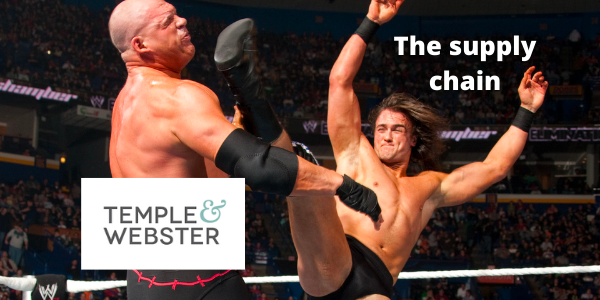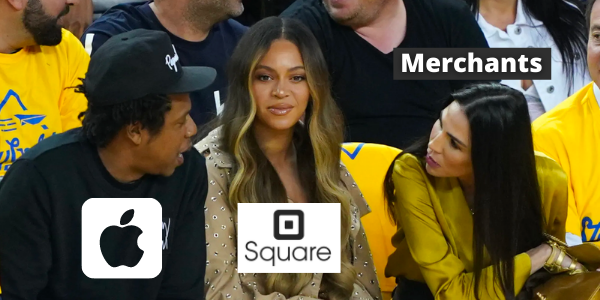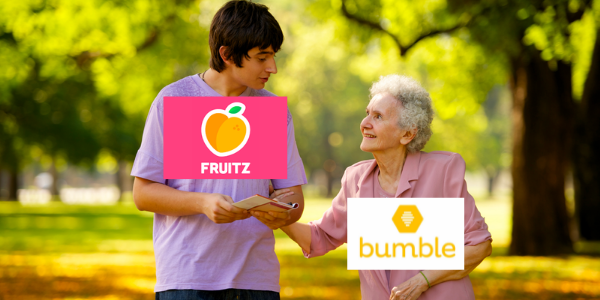Get smarter than your boss in 5 minutes with today's business news.
🔥 Temple & Webster feel the supply chain burn
💳 Apple will turn iPhones into credit card readers
💞 Bumble buys French dating app Fruitz
Hey hey, Flux fam!
Here's everything you need to know today - in under 3 minutes.
🔥 Temple & Webster feel the supply chain burn
💳 Apple will turn iPhones into credit card readers
💞 Bumble buys French dating app Fruitz
68% of Aussie entrepreneurs use their gut instincts to make decisions once a week, a new study shows. And around three-quarters reckon trusting their instincts has positively impacted their business!

Background: Temple & Webster is an online furniture and homewares retailer. It was founded back in 2011, and it went public in 2015.
What happened: After a couple of rocky years, the company has started to see some real growth. Their revenue was up 46% to $235 million for the six months to December 31.
What else: Buuut it's not all diamonds and roses because big, fat shipping costs, supply chain pain and heavy marketing investment pulled net profits after tax down by 40%. Still, if the US is anything to go by, Temple & Webster has a lot of room for growth here in Oz.
💡In the Aussie market, industry trends are often set by our friends over the pond in the US.
💡 Cases in point:
💡Online penetration in the homewares and furniture category is at around 10% in Australia. In the US? It's more than double that. So, there's a good chance Temple & Webster has a way to go here in Oz.

Background: Apple is pretty much always at the forefront of new technology - even in the payments space.
What happened: We know Apple has Apple Pay for consumers...but now, Apple is taking this tech one step further with a new feature called Tap To Pay for merchants.
What else: It will allow merchants (like your local cafe or market stall) to accept contactless payments, without any extra equipment. Which kinda makes those Square credit card dongles a 'lil redundant. Or at least the sharemarket thought so.
💡Innovation is generally a good thing. It can make us more productive, create new jobs and push down prices in the industry.
💡But the flip side is that innovation can reduce the profits of incumbents and eliminate jobs. Take Uber for example: the founders and gig economy workers won, but taxi drivers lost.
💡It's a fine line to toe, and right now, we could be about to see companies like Square potentially lose big to Apple's innovations.
even if the acquisition doesn't take place, investors take that into consideration. Which means until anything is locked in...there tends to be a bit of a share price volatility.

Background: Bumble is a dating app founded in late 2014 by a co-founder of Tinder. Now, the company's valued at more than US$8 billion.
What happened: Fruitz is a French dating app that launched back in 2017 with a focus on Gen Z users. It assigns fruits to each user and matches potential daters based on their matching fruits (🍉 with 🍉 or 🍇 with 🍇).
What else: Bumble has just acquired Fruitz for an undisclosed amount (boooooring). The hope is that this'll help Bumble attract a fresh, younger user-base.
💡As millennials begin to age out of dating apps, Gen Z is becoming the new, highly lucrative frontier.
💡Millennials are born between 1981 and 1996. That means today, they're between 26 and 41 years old. Traditionally, this is the age where people get married...have kids. And therefore, don't use dating apps (as much!).
💡To keep up, Bumble has been scanning the market to buy another company that's already hitting Gen Z's notes. And which 18-year-old doesn't love a few peach emojis?!
Sign up for Flux and join 100,000 members of the Flux family